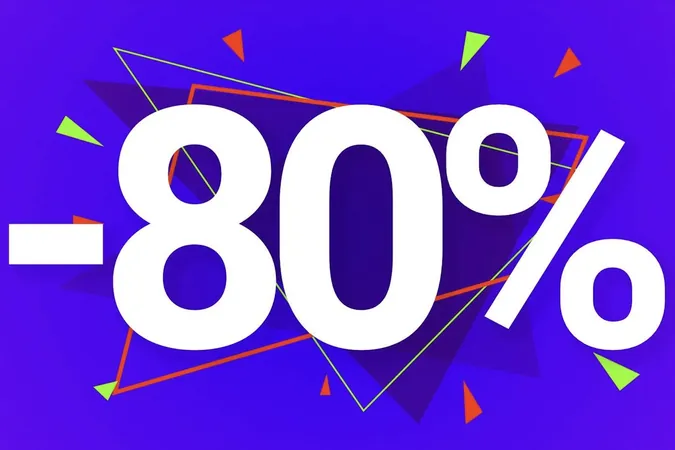
The Shocking Truth About Supplements: A Pharmacist Reveals the 3 Vitamins You Should Avoid at All Costs!
2024-11-19
Author: Wai
Did you know that more than half of Americans rely on daily multivitamins and dietary supplements? While many believe they’re making a healthy choice, a growing chorus of doctors and pharmacists warn that many of these supplements could be nothing more than a waste of your hard-earned money.
Pharmacist Amina Khan, who boasts an impressive following of 271,000 on TikTok, has recently shared a vital message about three types of supplements that she advises everyone to steer clear of—starting with the wildly popular gummy vitamins.
Here’s the scoop: gummy vitamins often contain about three to five grams of sugar per serving, and since the recommended intake is usually two gummies per day, you’re easily looking at a sugary treat. The American Heart Association recommends a daily sugar limit of 25 grams for women and 36 grams for men, making these gummies more akin to candy than health aids. Khan warns, "These are basically just sugar pills—you might as well indulge in a sweet."
But that’s not all. If you think your gummies are harmless because they’re sugar-free, think again! According to doctors at UCLA, these candies can contain other sweeteners like high-sugar fruit juice or sugar alcohols, which can lead to inconvenient digestive issues. Plus, their enticing flavors can misguide both adults and children into overindulgence—exactly what you don't want from a health supplement!
Next on Khan's hit list are multivitamins. Though they sound well-rounded, many of them provide such low doses of essential vitamins and minerals that they hardly have any effect. A large-scale study from Johns Hopkins involving around 450,000 people found that multivitamins offered no advantage in preventing heart disease. Another study examined nearly 1,700 individuals who had suffered heart attacks and concluded that multivitamins did not impact heart attack or mortality risks over a five-year period.
Dr. Edgar Miller from Johns Hopkins underscores the issue, stating, "Study after study comes back negative, yet people continue to take supplements at record rates." It's staggering to note that despite these insights, the global market for vitamins and supplements ballooned to an astonishing $146.14 billion in 2023.
Finally, let’s talk about those trendy supplements made to enhance hair, skin, and nail health. Khan insists these too are nothing to rave about, as most individuals are not deficient in the vitamins often bundled together in these products. Instead of relying on a multi-purpose supplement, specialists suggest focusing on single nutrients. For example, vitamin B8 can boost hair thickness, while vitamin D supports skin cell regeneration.
Even renowned experts like Dr. Pieter Cohen from Harvard Medical School echo this sentiment, arguing, "There's no robust data suggesting that any supplements can treat natural aging-related hair loss or enhance skin health."
Moreover, an alarming reality is that most dietary supplements remain unregulated by the FDA, raising concerns over their safety and efficacy. This lack of oversight allows companies to market products that might not contain what they claim—or worse, include harmful ingredients. The FDA usually steps in only if a product has been proven to lead to harm, but this does little for those who take supplements daily.
In summary, while the allure of quick fixes through vitamins and supplements remains strong, it seems the best course of action is to prioritize a balanced diet and consult healthcare professionals regarding any specific health concerns. Don't fall for the hype—your wallet and your body will thank you later!



 Brasil (PT)
Brasil (PT)
 Canada (EN)
Canada (EN)
 Chile (ES)
Chile (ES)
 España (ES)
España (ES)
 France (FR)
France (FR)
 Hong Kong (EN)
Hong Kong (EN)
 Italia (IT)
Italia (IT)
 日本 (JA)
日本 (JA)
 Magyarország (HU)
Magyarország (HU)
 Norge (NO)
Norge (NO)
 Polska (PL)
Polska (PL)
 Schweiz (DE)
Schweiz (DE)
 Singapore (EN)
Singapore (EN)
 Sverige (SV)
Sverige (SV)
 Suomi (FI)
Suomi (FI)
 Türkiye (TR)
Türkiye (TR)